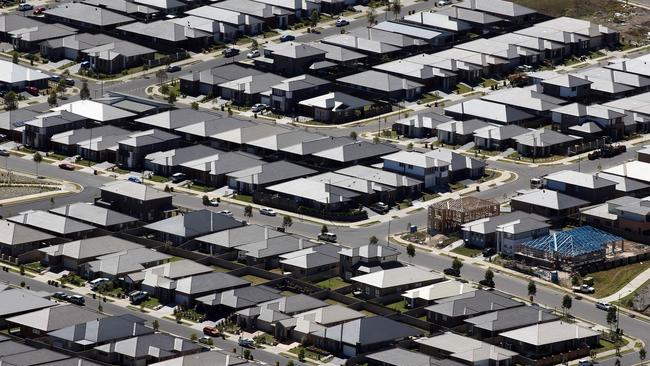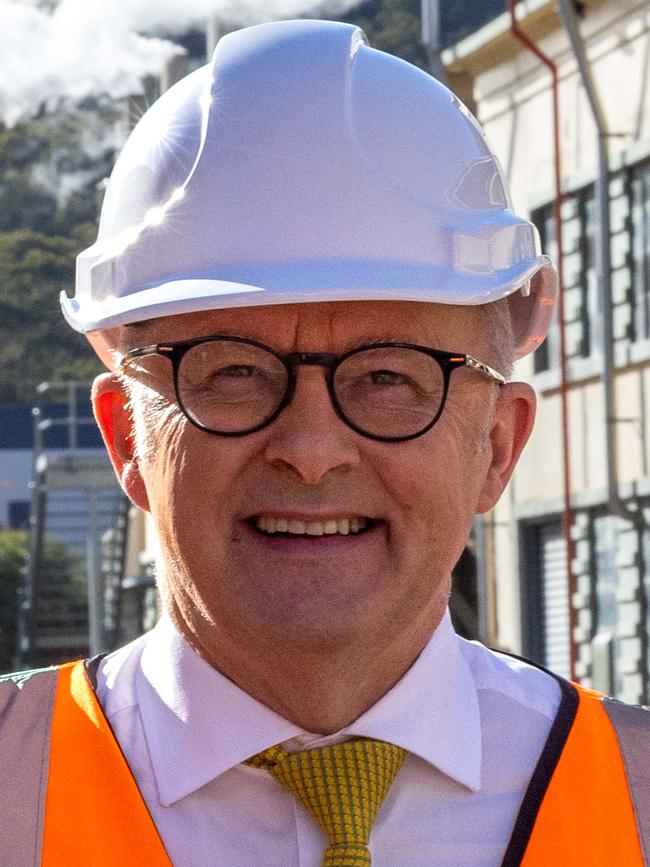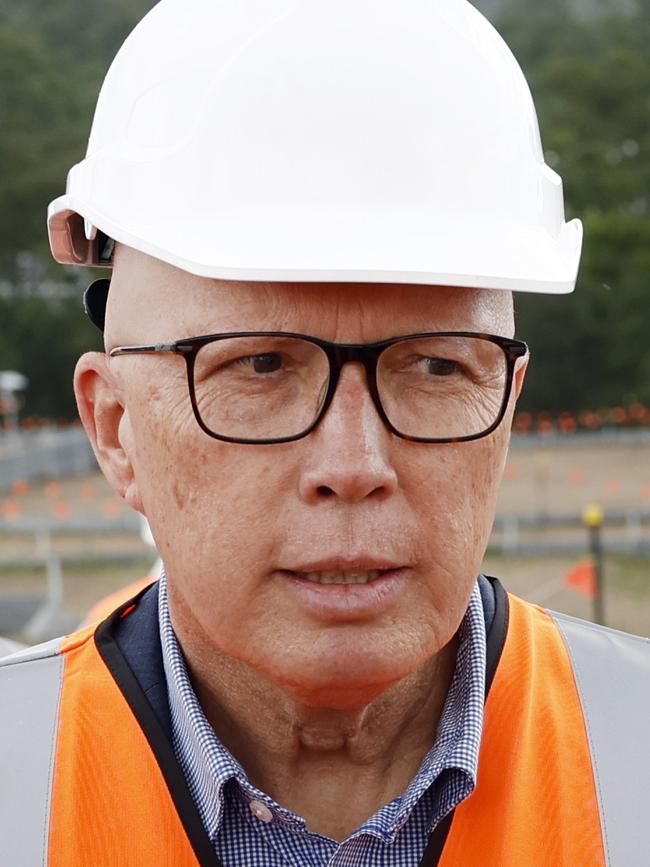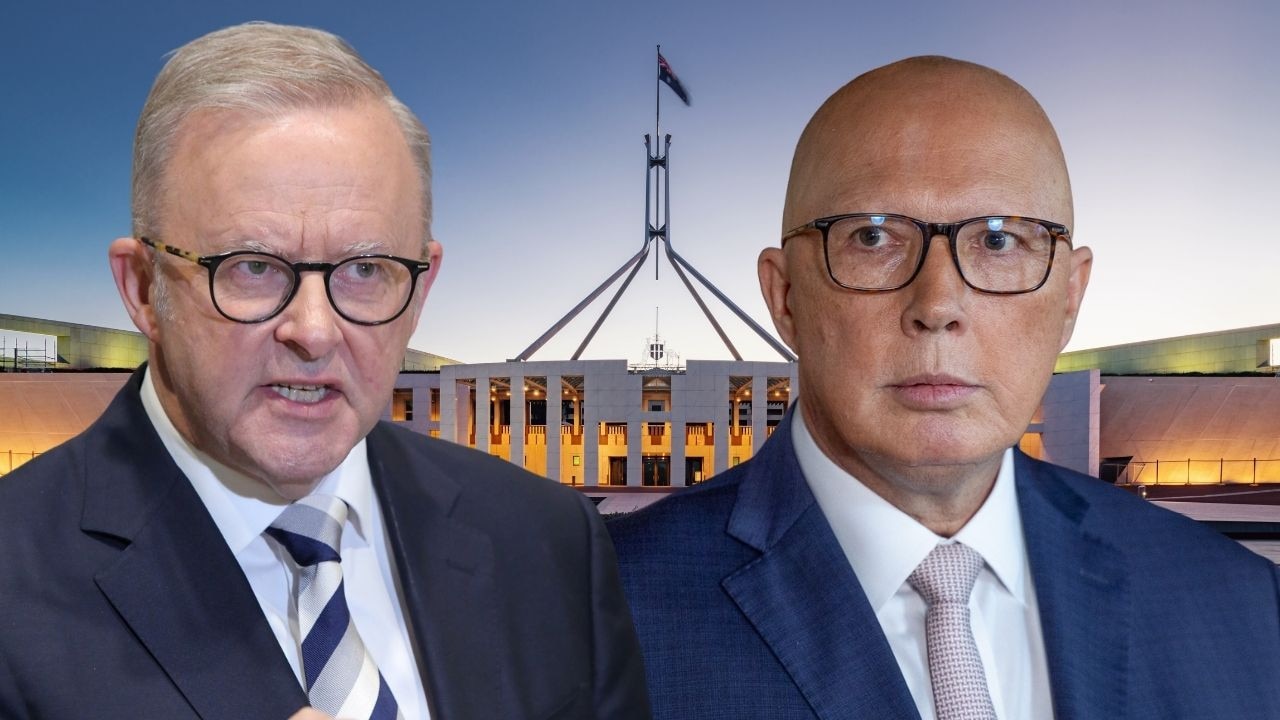Experts say Labor and Lib housing policies will still lock younger generations out of the market
Anthony Albanese and Peter Dutton need to do more to solve our housing crisis — and experts say there’s a key number they need to hit.

National
Don't miss out on the headlines from National. Followed categories will be added to My News.
Fast tracking construction approvals, overhauling tax settings, slashing stamp duty and cutting immigration are some of the difficult – but necessary – big reforms Australia must pursue in order to solve the housing affordability crisis, experts warn.
While both sides of politics have spent the week spruiking their housing polices ahead of the May 3 election, younger generations will continue to be locked out of the market unless governments tackle wholesale reform, economists and housing industry specialists said.

Among other ideas, they have called for:
● Fast-tracking housing approvals;
● Constructing more homes;
● Cutting immigration to sustainable levels;
● Abolishing stamp duty; and
● Overhauling tax settings that reward investors over first-home buyers.
According to AMP chief economist Shane Oliver, the answer lies in increasing housing supply, by overhauling restrictive planning laws and solving labour shortages.
“The key is to focus on boosting housing supply rather than boosting demand,” Mr Oliver said.
“This involves building more homes, by relaxing land use rules, releasing land faster, speeding up approvals, addressing labour shortages in the building industry, speeding up the supply of infrastructure to new home sites and refocusing on building more units relative to houses in the short term.”


HSBC chief economist Paul Bloxham agreed that addressing supply rather than demand was critical. Reforms to planning would boost construction capacity – as would boosting the availability of workers and materials, he said.
“Zoning restrictions raised the average price of detached houses by 73 per cent in Sydney and 69 per cent in Melbourne while, for apartments, the figures were 80 per cent in Sydney and 30 per cent in Melbourne,” Mr Bloxham said.
Despite the Albanese Government’s Housing Accord, which aims to build 1.2 million homes over five years, Australia is falling drastically short.
While Mr Oliver acknowledged the economic value of immigration, he said a corresponding supply of housing was necessary.
“Our estimate is that net migration needs to be cut back to around 200,000 a year, compared to around 240,000 seen in the pre-pandemic years and 500,000 plus in 2022-23,” he said.
“Once we have cut the housing undersupply to zero from around 200,000 to 300,000 dwellings at present, then we need to match the level of net migration to the ability of home builders to supply enough homes for them and the natural growth in the population.”
Australia’s median home price is now 9.7 times the median income – far higher than Canada, Ireland, or the UK – and Sydney, Melbourne and Adelaide are all in the top 10 most expensive places to buy property, anywhere in the world.


Mr Oliver said encouraging decentralisation was also essential “if we want to preserve our quality of life and avoid increasingly congested cities”.
For Mr Oliver, both major parties are guilty of focusing too heavily on politically popular demand-side policies like deposit schemes and tax breaks – measures he says only push prices further.
“Both sides of politics should agree in the national interest to ditch such schemes and just put all their effort into boosting supply to make housing more affordable,” he said.
UNSW Professor of Housing Research and Policy Hal Pawson said he was sceptical of the long-term benefit of the first homebuyer programs like the Help to Buy scheme and the First Home Guarantee, which enable people to buy with 5 and 2 per cent deposits, respectively.
“Unfortunately, neither of the two main parties is proposing real reform that would properly address the root causes of the housing crisis – especially damaging tax settings,” he said.
He is calling for the Albanese Government to deliver on its commitment to a long-term housing strategy.
“My number one move would be to recommit to the Albanese Government’s previously pledged – but undelivered – intention to develop a long-term national housing and homelessness plan. I would rename it the national housing strategy,” he said.
Professor Pawson believes this strategy should focus on access to adequate housing as a human right – not just a vehicle for wealth accumulation.


Rich Harvey, chief executive of Propertybuyer, said the removal of stamp duty would also assist.
“So much of the property market is locked up because of stamp duty,” he said, adding that pensioners were occupying family homes because they couldn’t afford the transaction costs.
“Getting rid of negative gearing would be stupid and the Greens’ rent caps are idiotic.
“We need incentives for the private market to provide rental property.”
Mortgage broker Kim Narayan said many clients were choosing affordability over location, with first home buyers forced further and further out into city fringes.
While demand-side help like the First Home Guarantee is welcomed by some advocates, experts like Mr Oliver and Professor Pawson say they were a “short term boost” only.
“Just like a sugar hit, the benefit will not be sustained as it will just be reflected in higher prices, making it even harder for future first home buyers,” Mr Oliver said.
More Coverage
Originally published as Experts say Labor and Lib housing policies will still lock younger generations out of the market




